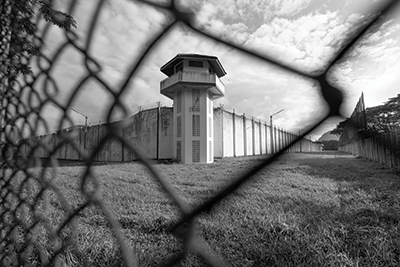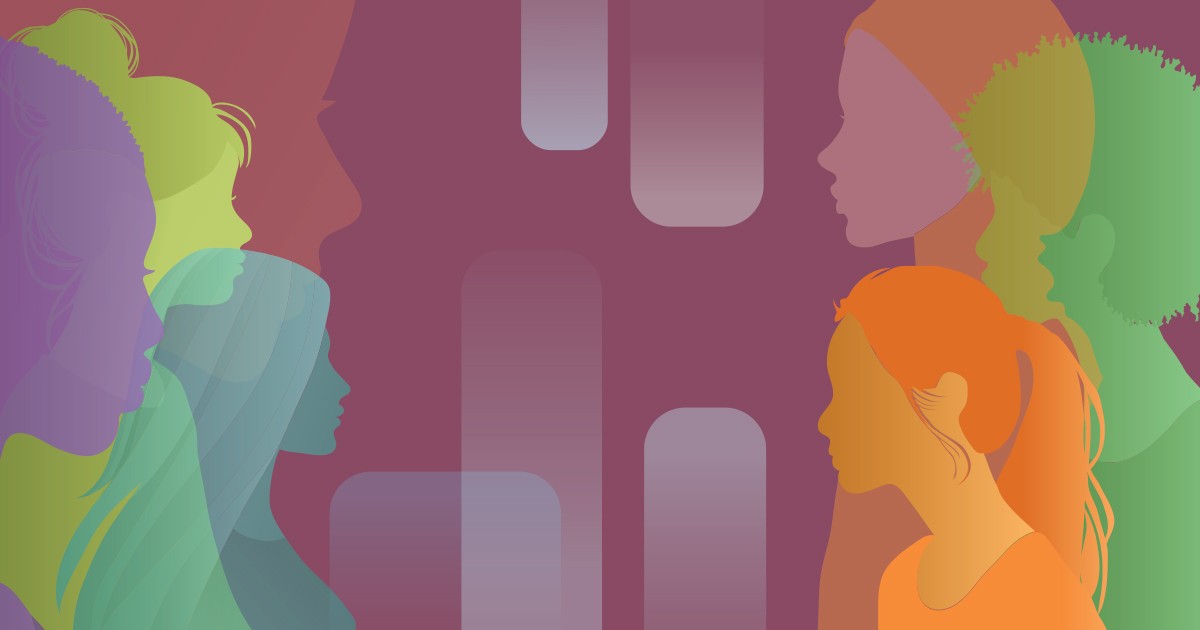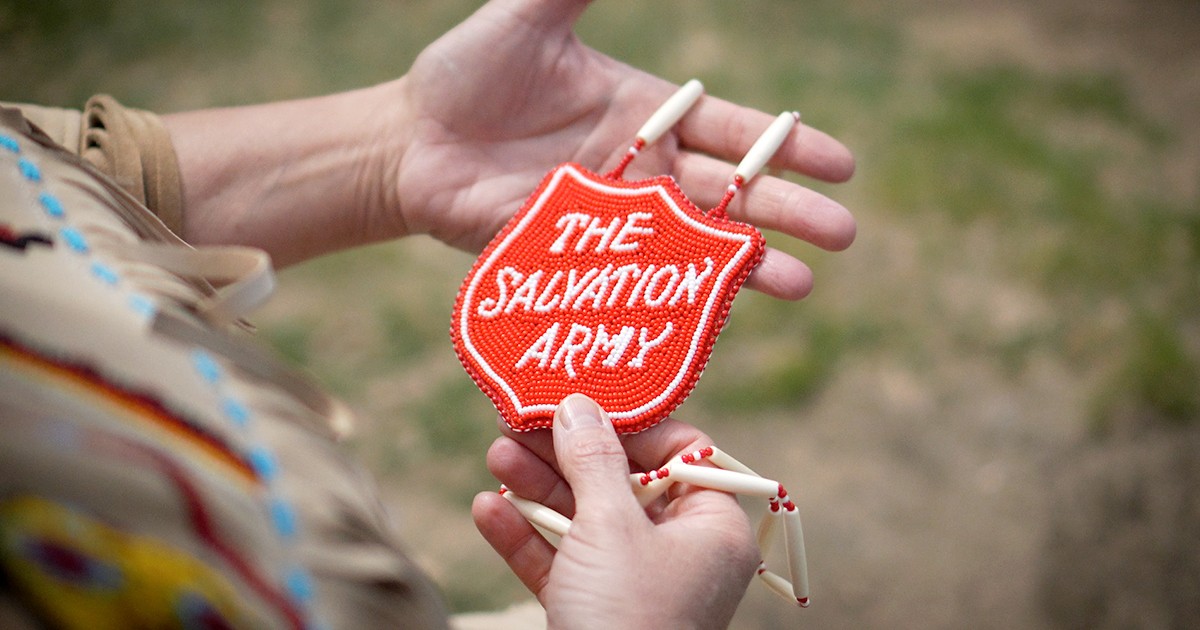The Canadian criminal justice system is broken. When it comes to issues such as racism and mass incarceration, Canadians often display a sense of superiority to our American neighbours—but there are many ways our criminal justice system maintains structures of oppression.
Before I started studying the experience of incarcerated men as part of my PhD in criminology at the University of Alberta, I had preconceived ideas about those deserving punishment. What changed my perspective was going into federal prisons with my university’s research team to interview these men personally. What I could not have predicted was the utter humanity every prisoner displayed: shame, hope, fear, anger, disappointment, love and grace.
In this article, I will examine some of the ways our criminal justice system is excessively punitive. A second article will address the overrepresentation of people of colour and Indigenous men and women in provincial and federal custody, and a third will reflect on what we can learn from Indigenous approaches to justice. I hope that as you read this, you will be challenged to consider the humanity of all people and feel compelled to take another look.
Just Deserts?
In Canada, we have understood prisons to serve three functions: incapacitation, punishment and deterrence. Incapacitation is the most basic means of increasing public safety: if we lock up dangerous individuals, they cannot commit crimes. Punishment reflects the desire for retribution—offenders who inflict harm receive their “just deserts.” Public opinion surveys show that people believe in punishment’s value and effectiveness.
Punishment functions, in part, to produce deterrence, the theory that undergirds the late 20th century’s breathtaking increase in sentence length, especially for drug crimes in the United States. This theory suggests that the rational offender weighs the cost of a longer sentence against the gains of committing a crime. Most scholars agree that increasing the severity of punishment does not reduce crime. This is not reflected in much policy and rhetoric that uses imprisonment as a cure-all to social problems. Of course, a prevailing public sentiment—that prisoners must all be “bad people” who deserve to be punished—paves the way for this.
While Canadian and American visions of penal policy differ, both have made moves toward more punitive prisons, with profound and long-lasting consequences for incarcerated people and their loved ones. While I do not believe that the abolition of our prisons is the solution, I believe that, as it currently stands in many nations, prisons serve primarily to disrupt vulnerable and marginalized communities, while offering little to curb the tide of crime and re-offending. It is an expensive non-solution.
In Canada, our own era of “tough on crime” policy changes mostly occurred between February 2006 and November 2015. In a strikingly similar fashion to its American counterpart, the Canadian government enacted a range of legislation to make prison conditions harsher, sentences longer, expand mandatory minimum penalties and undercut opportunities for alternatives to imprisonment. What changed my perspective on the criminal justice system was meeting and talking to prisoners.
The Impact of Incarceration
It was a late afternoon in February, one week into our team’s research at a prison institution in western Canada. I had interviewed more than a dozen prisoners at that point, some convicted of serious and violent crimes and some in for drug possession or misdemeanors. These men came from all walks of life. This time, I was in a minimum-security wing, reserved for offenders who exhibited model behaviour and could be trusted with a greater degree of independence and autonomy within prison walls.

I spent almost two hours in a small room with a man in his 50s who walked me through much of his life story leading up to prison. He lacked hope and support in his youth, and after a series of misdemeanor offences (petty theft and drug possession) he was convicted for an attempted violent assault. This crime gave him the label of “dangerous offender,” which meant he received an indeterminant sentence. He had been in prison for almost 30 years by the time I spoke to him. Every time he came up for parole, he was denied, as is customary if you are deemed especially dangerous to society. He had not been in trouble in the prison in two decades, was never involved in violent altercations and attended every possible program made available to him.
I find it so hard to write about this because I know there are many who have already made up their mind about people like him: They are violent, dangerous and must be held accountable for their actions. While accountability is important, is our hyper-punitive system really the most effective approach?These are people. They are brothers, sisters, mothers and fathers. I remember looking at the periodically tear-filled eyes of this burly man in front of me. I remember feeling profoundly uncomfortable, even anxious. I had never seen the face of someone teetering on the edge of abandoning all hope for the future.
Disturbing Contradictions
The Canadian criminal justice system is rife with disturbing contradictions. We want offenders to change, to become contributing and prosocial members of society, yet we label them criminals and make it difficult, legally and culturally, to shed that identity. We want offenders to work productively, make a legal wage and avoid the criminal enterprise that may have brought them to prison in the first place, yet employer discrimination and stigma exclude ex-offenders from many spheres of work where they may be a “risk.”
We “prepare” prisoners for individual responsibility, accountability and wise decision-making by stripping them of their dignity, freedom and agency, and facilitating an environment of hyper-masculinity, violence and mistrust. We (maybe) rehabilitate them in a laboratory setting, not resembling the real world. We encourage engagement in prison work, but we pay them next to nothing ($6.90 a day in Canada), as if that will inspire trust in a fair and equitable system. This is the Canadian approach to crime, and it does not work.
I am not suggesting we stop holding people responsible. I am not suggesting we leave dangerous individuals in our communities unchecked. I am suggesting we re-evaluate the metric by which we decide who those people are, what punishment they deserve and whether we believe they can be redeemed. If criminal activity is both an individual decision and a symptom of structural deficiency, prison is a solution that assumes it to be only one of individual disposition. This is implicit in the “rehabilitative function” itself, regardless of whether it even occurs. A re-imagined criminal justice system and re-entry process requires a more integrated understanding of the individual and the conditions they face, especially if the conditions disproportionately affect already marginalized people: people of colour, Indigenous people, houseless people, low-income families and people with severe mental-health struggles and addiction.
If we are to approach crime with this lens, we will concede some jurisdiction of public safety to bodies other than the criminal justice system with housing-first approaches, therapeutic solutions rather than only incarceration, mentorships for juvenile offenders, harm-reduction strategies in and out of prison, funding in education, community-oriented interventions that empower rather than undercut agency—these are just a few of the ways we can recalibrate an overly punitive system. Moreover, we must prioritize the reframing of public understanding of prison and especially of the “criminal” to encourage the recognition of the humanity of all people.
Justice and Mercy
We cannot continue to replicate systems that do profound damage to those we funnel through them. Micah 7:18 says, “Who is a God like you, who pardons sin and forgives the transgression of the remnant of his inheritance? You do not stay angry forever but delight to show mercy.” The system and our cultural sentiment toward offenders and ex-offenders involve staying angry toward them forever. In our humanness, we rank offences, with violent acts topping the list. I understand why.
Yet this is not how God operates, by a system of deservedness. We have all “sinned and fall short of the glory of God” (Romans 3:23) and need grace and forgiveness. My heart aches to imagine a world in which Christ would treat me the way we treat people in the justice system. I grieve the thought of him abandoning me in my failure, hardening his gaze at my transgression and deciding that I am beyond redemption.
Is the way we see incarcerated Canadians compatible with the gospel we proclaim? Do we believe, even subconsciously, that certain segments of the population are less deserving of mercy than others? Our God is both justice and mercy. Are we?
Rebekah McNeilly is the social media and resource co-ordinator for women’s ministries in the Canada and Bermuda Territory. The next article in this series by McNeilly will be published on Salvationist.ca in June 2022.
Photo: RapidEye/iStock via Getty Images Plus
This story is from:










https://www.businessinsider.com/why-norways-prison-system-is-so-successful-2014-12
https://www.youtube.com/watch?v=zNpehw-Yjvs
https://www.bbc.com/news/stories-48885846
A quote that I had read, "The degree of civilization in a society can be judged by entering its prisons."